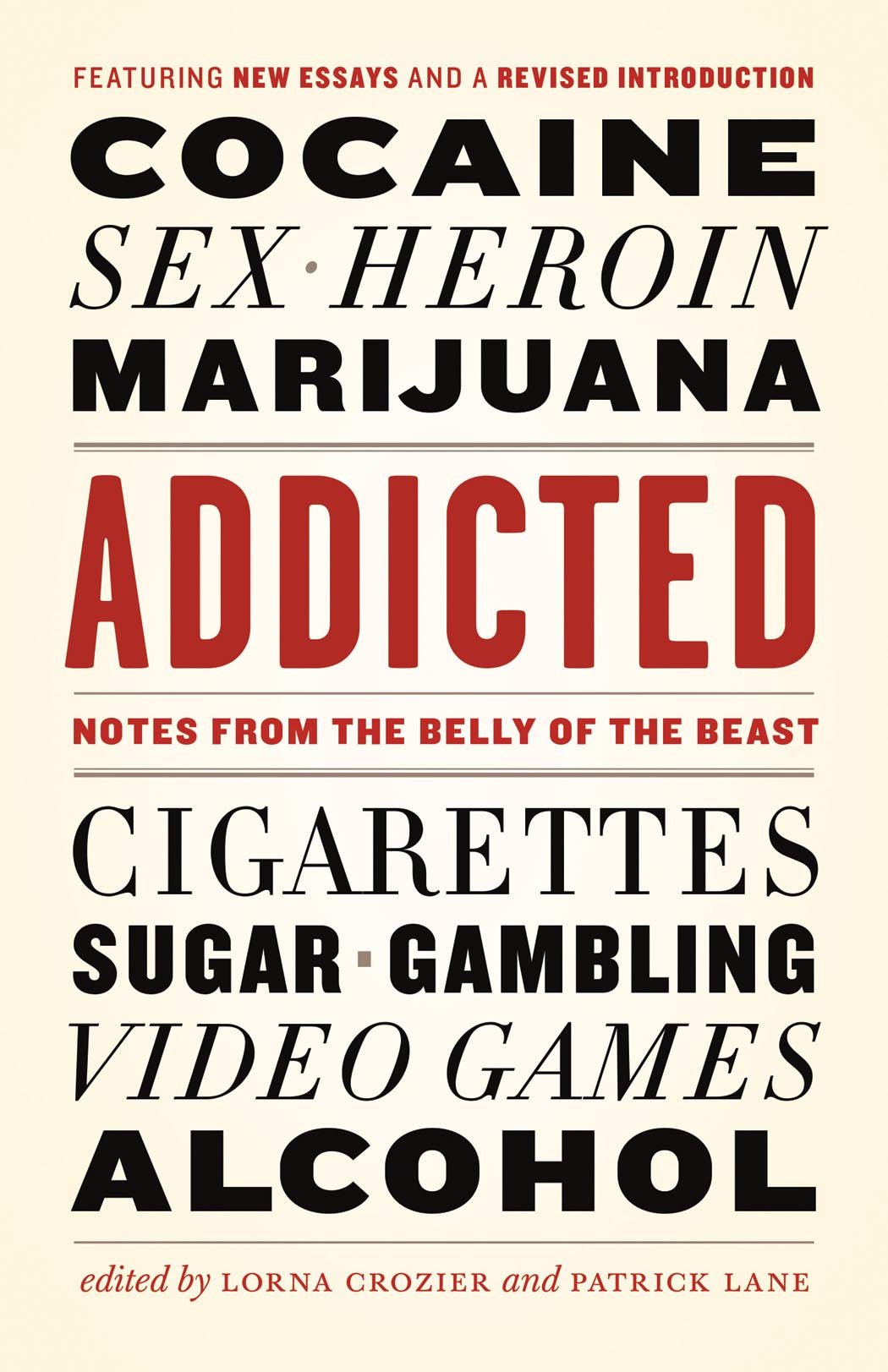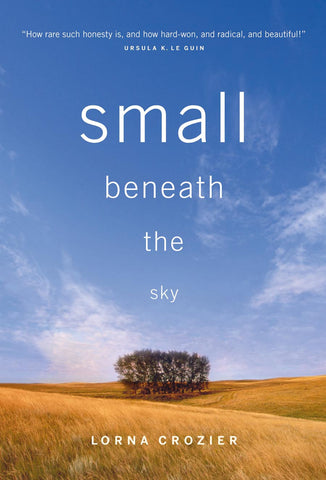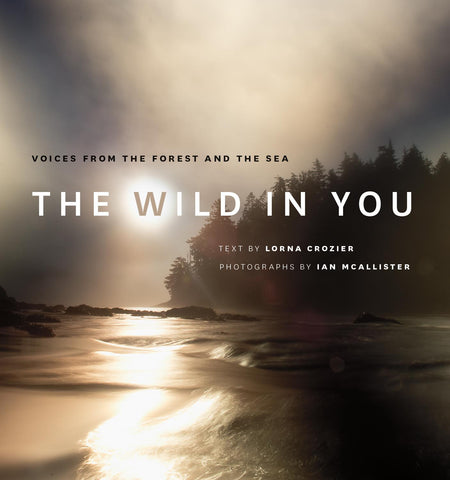Addicted
Notes From the Belly of the Beast
- ISBN: 9781771641869
- Tags: Biography & Memoir, Health & Wellness, Lorna Crozier, Patrick Lane,
- Dimensions: 5.5 x 8.5
- Published On: 02/05/2016
- 304 Pages
- ISBN: 9781771641876
- Tags: Biography & Memoir, Health & Wellness, Lorna Crozier, Patrick Lane,
- Published On: 2/22/2016
- 272 Pages
“Addiction is a lonely pain, and perhaps the only hope for curing this soul-sickness is to reach out and try to cope with the world outside the darkness. The best-written essays in the collection . . . demonstrate this most strikingly, and may go some way toward making that healing possible.” – Quill and Quire
The best-selling collection about addiction featuring three new essays on marijuana, video games, and sex.
Is addiction a disease, a sin, a sign of hypersensitivity, a personal failing, or a unique resource for the creative mind? However it is defined, it can have devastating consequences, often shattering lives, ruining families, wrecking livelihoods, and even triggering suicide. Yet it can also be a source of inspiration. In this updated edition featuring three new essays, on addiction to marijuana, video games, and sex, leading American and Canadian writers explore their surprisingly diverse personal experiences with this complex phenomenon, and candidly reveal what happened when their compulsions took over their lives.
Includes essays by Crozier and Lane, as well as Tom Bissell, Susan Cheever, Peter Gzowski, Molly Jong-Fast, Evelyn Lau, Elianna Lev, LesLIE, John Newlove, Stephen Reid, David Adams Richards, Lois Simmie, Sheri-d Wilson, Rick Whitaker and Marnie Woodrow.
Lorna Crozier, an Officer of the Order of Canada, has received many awards for her books of poetry, including the Governor General’s Award. Her latest publications are The Book of Marvels: A Compendium of Everyday Things and The Wrong Cat.
Patrick Lane has been called the best Canadian poet of his generation. He is the author of more than twenty books of poetry, most recently Syllable of Stone. His 2004 memoir, There Is a Season, won the inaugural BC Award for Canadian Non-fiction.
"Beautifully written, heartbreakingly poignant tours through 'the belly of the beast.' Tagging along, we learn something about pain and something about forgiveness." -Vancouver Sun
From the Introduction
Over the past twenty-five years, I’ve sat in many a smoky kitchen with friends, all of us telling stories of parties, conferences, festivals and other events where we’d gathered as writers. There was always a bottle of wine in the middle of the table, a case of beer in the fridge, and a twentysix of whisky on the counter next to the sink. Funny and outrageous, our stories circled around booze and drugs, though the words alcoholism and addiction were never mentioned.
–
I don’t regret the experiences we shared, but things are different now. The bottles may still be on kitchen tables and counters somewhere, but where I’ve been sitting for some time now, the spectre of addiction has added a cautionary note to our behaviour and our tales.
Some of Canada’s most revered and influential writers—Margaret Laurence, Alden Nowlan, Gwendolyn MacEwen, John Thompson, Marian Engel, Al Purdy, to name a few—were close companions of the bottle. In the United States, names like William Faulkner, Jack Kerouac, Raymond Carver and Dorothy Parker immediately come to mind. Sometimes you catch glimpses of this affinity in their fiction or poetry, but none of them left us with an autobiographical account. As I pondered the role alcohol has played in my own life, I couldn’t help but wonder what these glorious writers would have said about the topic and what a difference their words might have made to those who read them. Out of such ruminations came the idea for this book.
The first name of my own generation that came to mind was David Adams Richards. David is not only a gifted writer but also a great raconteur. Some of the stories I’ve heard him tell in his rich New Brunswick lilt have been about his drinking days. Full of humour, self-deprecation and an incredible, charming honesty, they hold listeners enthralled. If he agreed to put his words on paper, I thought, I’d take it as a sign to approach others. I hesitated to phone him. Talking around the table and writing things down for the whole world to see are very different propositions. But David’s response to my request was an immediate “Great idea.” He said that though he’d written about alcoholism in his novels, he’d never done so in a more personal account, and it was “about time” he did.
David’s “about time” confirmed my sense that this was the right moment for such a book. After he accepted, I asked Patrick Lane to share the task of editing. He and I have been together for more than two decades, and for the last while we’d been living with his struggles to get sober. Our mutual breaking of the silence around alcoholism became an act of faith. If we were going to ask others to write about their addictions, we needed to do it ourselves.




